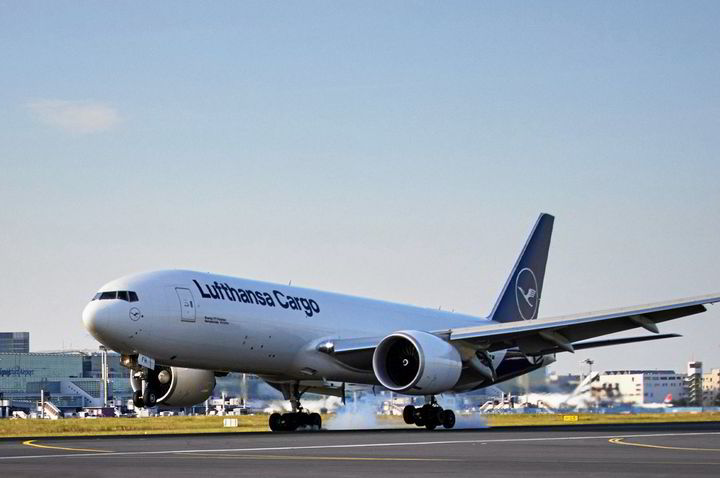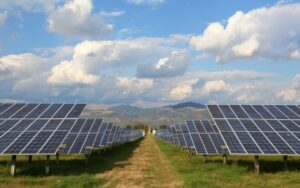‘Airlines are not willing to pay a premium for green hydrogen-based e-kerosene’: report

Many international airlines are shying away from paying a premium for e-kerosene made from green hydrogen, which is putting the future of projects producing the fuel in jeopardy, according to a new study published by a clean transport group.
Last October, EU member states signed off on the ReFuelEU Aviation directive, which stipulates that 1.2% of all aviation used by planes leaving EU airports in 2030 must be made from synthetic kerosene derived from green hydrogen — roughly 600,000 tonnes of the e-fuel.
And although there are 25 large-scale e-kerosene projects in Europe with a combined output of 1.7 million tonnes, none of these have reached final investment decision (FID) and only a handful are in the advanced stages of development, Transport and Environment (T&E) found in its report, The challenges of scaling up e-kerosene production in Europe.
E-kerosene is made by synthesising green hydrogen with either biogenic carbon dioxide (derived from biomass combustion) or waste CO2 from industrial processes.
The non-governmental organisiation (NGO) identified a range of factors behind the slow pace of development, but identified the high cost of e-kerosene production as a “significant barrier” to getting airlines to buy the fuel, which in turn restrict the projects’ access to the commercial finance and public grants that would smooth the path to FID.
“Some e-kerosene producers report they are struggling to secure offtake agreements with airlines, who are reluctant to pay a green premium,” T&E said.
Article continues below the advert
A few airlines have made preliminary overtures to e-kerosene producers, including Lufthansa Cargo’s offtake deal with German demonstration plant Atmosfair — production at which is currently on hold — and memoranda of understanding between various producers and carriers such as Air France-KLM and Norwegian, however, these are the “exceptions”, the NGO explained.
But it also suggested that the punitive financial penalties for fuel suppliers and aircraft operators who fail to comply with the ReFuelEU targets (which would be passed on to aviation customers) may motivate airlines to either apply pressure to their suppliers or directly engage with e-kerosene producers, as the targets come into force in 2030.
The size of the penalties will be determined by the European Commission before 2027, but are expected to be €1,000-6,000 ($1,080-6,485) per tonne of e-kerosene below the target.
Citing data from the International Council on Clean Transportation (ICCT), T&E estimated that production costs for e-kerosene were around ten times higher than fossil fuel-derived kerosene (also known Jet A fuel) in 2020, noting that the production of renewable electricity and green hydrogen make up 60% of total e-kerosene production costs.
This gap is set to reduce to 3.5 times that of Jet A by 2030, and 2.5 times in 2050, as power and electrolysis costs come down.
However, the availability of green hydrogen and biogenic carbon represent another bottleneck for e-kerosene producers. In fact, if aviation fuel demand continues on its current trajectory, the 35% that ReFuelEU mandates should be met with e-kerosene by 2050 would gobble up around 534TWh — 11% of all the EU’s projected renewable electricity supply.
This figure could be reduced to 6%, T&E said, if demand for aviation fuel is managed by building out road and rail alternatives, and with efficiency gains.
Nevertheless, the NGO warned that the slow pace of European renewable H2 project development is having a knock-on effect on e-kerosene projects, especially as many schemes are planning to buy in green hydrogen, rather than integrate electrolysis into their plants.
The supply-chain challenge is exacerbated by oil producers’ dominance of downstream jet fuel infrastructure, the NGO warned, urging the EU to implement strict third-party access rules to allow new players to enter the market.
Moreover, e-kerosene plants also face a potential shortage of biogenic carbon with which to synthesise e-kerosene, partly because of a general shortage of supply of biomass-derived carbon but also because the EU’s current regulatory environment encourages carbon storage rather than utilisation, T&E said.
Every single one of the total 45 large-scale and demonstration sized e-kerosene projects in the European Economic Area (EU plus Norway, Iceland and Liechtenstein) is planning to use biogenic carbon sources rather than solely relying on direct air carbon capture (DACC) or industrial process gas.
This is because the EU’s Delegated Acts on Renewable Fuels of Non-Biological Origin (RFNBO) only permit the use of industrial process carbon in synthetic fuels until 2041. This would give e-kerosene plants built in 2026 to handle industrial process gas a life of 15 years — not enough to amortise investments, producers told the NGO.




